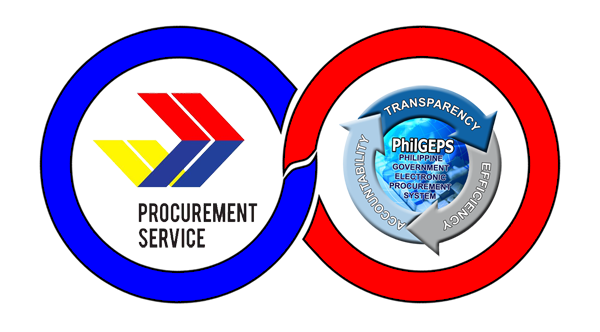Wholesale or wholesaling is the act of purchasing goods or products in large quantities from a supplier at a discounted price. In simpler terms, the more you buy, the greater discount you can get, hence lower the price per quantity. It is commonly used by businesses and retailers to obtain inventory for resale to customers. Wholesaling is a purchasing strategy used by businesses to save time by buying goods or products in big quantities rather than frequent purchasing and save money by getting the most out of their resources through bulk discounts. In this article, we will guide your business in how to do wholesale purchasing in the Philippines correctly and discuss the importance of wholesale purchasing for businesses in the Philippines.
The Basics of Wholesale Purchasing in the Philippines: What It Is and How It Works
Wholesaling in the Philippines follows the same general principles and process the same way wholesaling is done in other countries. But before you start contracting and negotiating with suppliers, manufacturers, distributors or wholesalers in the Philippines, let’s first dive into the basic process of buying wholesale in the Philippines.
Step #7 is really important which makes wholesaling in the Philippines a better experience and would definitely support your business growth.
- Identify what products you need
The products you offer are the foundation of your business. Before you can start looking for wholesale suppliers to purchase from in bulk, it is important to first identify your product needs. This means determining the specific types of products that you need to purchase, as well as the quantity that you require. By doing so, you can narrow down your search for suitable suppliers and focus on those that can provide you with the products you need in the quantities you require. This can help streamline the purchasing process and ensure that you are able to obtain the necessary products for your business.
- Research potential suppliers
Before you start reaching out to wholesale suppliers, the first step is to do research. As a business, you would want to provide the best quality products for your customers and failure to do research on potential suppliers that can bring out your product’s maximum potential can compromise your brand, product quality and worse your business. Besides the quality of products that suppliers can produce, you should also consider researching price, discounts, reliability, and delivery times when evaluating potential suppliers.
A B2B eCommerce marketplace like Shoppable Business can help you look and connect with the right wholesale supplier from thousands of vetted brands, suppliers, and wholesalers in the Philippines for your business needs.
- Evaluate potential suppliers
After identifying potential suppliers that can provide the products you need, the next step is to evaluate them based on various factors such as price, quality, reliability, and delivery times. You want to ensure that you are getting the best value for your money and that the products you are purchasing meet your standards in terms of quality and reliability. It’s also important to consider the delivery times and the supplier’s ability to meet your deadlines.
To make an informed decision, you may want to conduct research and check reviews and ratings from other customers who have worked with the supplier. This can give you a sense of their experience and help you make an informed decision about whether or not to work with them. By evaluating potential suppliers carefully, you can increase the chances of finding a reliable supplier who can meet your product needs and support the success of your business.
If you’re looking for a B2B wholesale supplier for your business in the Philippines, Shoppable Business offers a FREE request for a quotation service. Shoppable Business provides you with 100% authentic products guaranteed every time you purchase, connect you with thousands of vetted suppliers, and help you get goods and products that you need for your business!
- Contact suppliers and negotiate terms
After evaluating potential suppliers, it’s time to contact suppliers that you are most interested in. When contacting the suppliers you’re interested in, it’s important to provide them with clear specifications and requirements for your order. This includes the quantity, quality standards, packaging, delivery date, and payment terms. Based on these specifications, the supplier will provide you with a quote that includes the price per unit, the total cost of the order, and any other fees or charges.
Negotiation is an important aspect of the wholesale purchasing process, as it can help you get a better deal on the products you need. When negotiating with suppliers, be clear about your budget and the volume of products you need to purchase. You can also ask if they offer any discounts for bulk orders, or if they can provide any additional services such as custom labeling or packaging.
Once you’ve agreed on the terms of the order, make sure to get everything in writing, including the price, delivery date, payment terms, and any other details. This will help prevent any misunderstandings or disputes later on.
- Place an order
When placing your order with the supplier, make sure to double-check all the details, such as the quantity, product specifications, and delivery date. It’s also important to have a clear understanding of the payment terms and any other relevant details, such as shipping and handling fees. Be sure to communicate any special requirements or instructions to the supplier, such as specific labeling or packaging requirements. Finally, keep a record of your order and any communication with the supplier for future reference.
- Receive and inspect the goods
Upon receiving the goods, it is important to inspect them thoroughly to ensure that they are the right quantity and meet your quality standards. Check for any damage or defects, and compare the products to the specifications outlined in your order. If you notice any issues, contact the supplier immediately to address them and resolve any problems. It is important to communicate clearly and document any discrepancies or concerns to ensure a smooth resolution process.
- Build a strong relationship with your wholesale suppliers
Building a strong relationship with your wholesale supplier is an investment for your business. It is a long term commitment and investment to stay in touch with your wholesale supplier and it is crucial for the success of your business in the long run. Building a strong relationship with your wholesale supplier doesn’t happen in one transaction, so here are some tips to follow to maintain a positive relationship with your wholesale supplier:
Communicate effectively
Maintaining clear and open communication with your supplier is key to a strong relationship. Make sure to be upfront about your expectations, requirements, and concerns, and don’t hesitate to respond promptly to any queries they may have. It’s also important to keep them in the loop about any changes or updates regarding your orders. By keeping the lines of communication open and transparent, you can build trust and understanding with your supplier, and ensure that both of your needs are met effectively.
Pay on Time
Paying your suppliers on time and following through on your purchase agreements is integral for building a strong relationship based on trust and reliability. When you fail to pay on time or don’t follow your agreements, it can put a strain on your relationship with your supplier, which can make it difficult to conduct future transactions. By meeting your obligations, you demonstrate that you value their time and effort, and you set the foundation for a long-lasting and successful partnership.
Provide feedback
It’s always a good idea to provide your supplier with feedback on the quality of their products and services. Let them know what’s working well, and where they can improve. By doing this, you help them better understand your needs, and they can tailor their offerings to meet your requirements more effectively. Your suggestions can also help them to identify areas where they may need to make changes or improvements to their products or services. Ultimately, providing feedback is a win-win for both parties, as it can improve the quality of your supplier’s offerings and help you get the most out of your partnership.
Build rapport
Building a strong relationship with your supplier can be enhanced by taking the time to get to know them on a personal level. Show interest in their business and ask questions about their background, experience, and goals. This will not only help build rapport, but it can also create a sense of mutual respect between you and your supplier. By showing genuine interest and taking the time to understand their business, you can build a strong foundation for a successful and long-lasting partnership. In the end, strong relationships are built on trust, respect, and a shared vision, and taking the time to get to know your supplier can help you achieve all three.
Consistent Orders
It’s important to maintain a consistent and predictable ordering pattern with your suppliers. This helps them plan their inventory and production schedules more effectively, and in turn, they may be able to offer you better pricing and terms. By being reliable and consistent with your orders, you can build a strong relationship with your suppliers and set yourself up for long-term success.
Common Mistakes to Avoid When Purchasing Wholesale in the Philippines
Purchasing wholesale is a cost-effective strategy to source goods and products for your business in the Philippines, but it’s important to avoid common mistakes that can result in wasted time and money. Here are some common mistakes to avoid when purchasing wholesale in the Philippines
- Not researching the supplier properly
It’s important to research potential suppliers thoroughly before doing business with them. You might miscalculate or overestimate your research and might miss out on details on how potential suppliers operate to their customers. Check their reputation, reviews, and ratings from other customers to make sure they’re reliable.
- Overlooking quality
While it may be tempting to go for the cheapest option, it’s important to remember that quality should be a top priority. If you purchase low-quality products, you risk damaging your brand’s reputation and losing customers.
- Not negotiating
What makes wholesaling your products from suppliers cost-effective is having the ability to maximize your resources by purchasing discounted products when you buy in bulk. Many suppliers are willing to negotiate prices, especially if you’re purchasing in bulk. Don’t be afraid to ask for a better price or better terms, as this can save you money in the long run.
- Failing to communicate effectively
Communication is key when working with suppliers. Make sure you communicate clearly about your product needs, delivery times, and payment terms. Failing to communicate effectively can result in misunderstandings, delays, and potentially having a bad reputation for your company between suppliers.
- Forgetting to review contracts
Before signing a contract, make sure you read and understand all terms and conditions. Don’t hesitate to ask for clarification if there’s anything you don’t understand.
- Neglecting supplier relationships
As we’ve mentioned above, building a strong relationship with your wholesale suppliers is essential for your business. Building a strong relationship with your supplier can lead to better prices, better quality products, and better service. Don’t be afraid to reach out to your supplier regularly and build a rapport with them.
Types of Basic Wholesale Suppliers in the Philippines and How to Choose the Right One for You
There are different types of wholesalers that you can look for depending on your business model. The three types are manufacturers, distributors, and suppliers.
Manufacturers
A manufacturer is a company that produces or creates goods or products, either by using raw materials or components to assemble a finished product or by transforming raw materials into a finished product through a manufacturing process. Manufacturers typically have specialized equipment, machinery, and labor forces that enable them to produce goods at scale.
For businesses that develop their own unique brands and products from raw materials, partnering with manufacturing companies is essential to produce their desired products. By collaborating with manufacturers, businesses can create prototypes and visualize initial products. Additionally, manufacturers can help you product ideas and input to enhance the products beyond the initial prototype.
Distributors
A distributor is a company or individual that purchases products from manufacturers or wholesalers and sells them to retailers or other end-users. Distributors typically purchase products in bulk and sell them to their customers in smaller quantities. They may also provide other services such as marketing, advertising, and customer support. Distributors can be a good fit for businesses that want to expand their reach and increase their sales by tapping into a wider network of retailers or end-users.
For businesses that are in the retail industry that sell pre-made products such as food & beverage, healthcare & medicine, clothing & apparel, then it can be an advantage for your business. By leveraging a distributor’s network of contacts and distribution channels, businesses can tap into a wider network of retailers and end-users, which can help them reach a larger audience and grow their customer base. Distributors can also help businesses reduce their costs and streamline their operations by handling logistics and consolidating orders.
Suppliers
A supplier is a company or individual that provides goods or services to other businesses or individuals. Suppliers can provide a range of products or services, from raw materials and components to finished products and equipment. In general, suppliers are responsible for sourcing, producing, and delivering the products or services that they provide. For example, a manufacturer of shoes may rely on a supplier for raw materials such as leather or rubber, or for equipment such as sewing machines. A restaurant may work with a food supplier to provide ingredients and other supplies.
All businesses, regardless of industry, require suppliers in one form or another. However, the type of suppliers that a business should look for depends on the nature of their operations and the products or services they offer.
For example, a manufacturer that produces goods will need suppliers that can provide raw materials, components, and equipment necessary to create their products. On the other hand, a service-based business may need suppliers for office equipment, software, or other tools necessary for their operations.
How to Choose the Right Wholesale Supplier for your Business in the Philippines
With the given basic types of wholesale suppliers, here is how you can figure out how to right wholesale supplier for your business in the Philippines:
- The type of Product
As mentioned previously, each business has unique requirements when it comes to producing their products. Therefore, it’s important to identify suppliers that can meet your specific standards and needs, and have the ability to produce products that align with what you plan to sell for your business.
- Product Quality
The quality of the products that the supplier offers should match your standards and expectations. You can check the quality of the products by ordering samples or visiting the supplier’s warehouse to inspect the products in person.
- Price
The price of the products should be competitive and reasonable. Compare prices from different suppliers to find the best deal for your business.
- Minimum Order Quantity (MOQ)
The MOQ refers to the minimum number of products that you need to order from the supplier. Make sure that the MOQ is reasonable for your business needs and budget.
- Delivery Time
The supplier should be able to deliver the products within a reasonable time frame. Check the delivery schedule and lead time to make sure that they align with your business needs.
- Reliability
Look for a supplier with a good reputation and a track record of delivering products on time and with consistent quality. You can check reviews and ratings from other customers to get a sense of their experience with the supplier.
- Customer Service
Choose a supplier who provides good customer service and is responsive to your needs and concerns. This can make a big difference in the success of your business relationship with the supplier.
- Payment Terms
Check the payment terms and methods accepted by the supplier to ensure that they align with your business needs and budget. Some suppliers may require a deposit upfront, while others may offer credit terms for established customers.
The Next-Gen B2B eCommerce Marketplace in the Philippines: Wholesale Suppliers in the Philippines
Shoppable Business is the Next-Gen B2B eCommerce Marketplace in the Philippines that can help your business connect with wholesale suppliers in the Philippines from over thousands of vetted suppliers, brands, and products.
Shoppable Business can provide your business with better wholesale suppliers with 100% authentic products guaranteed big discounts on bulk purchases, 1-2 day deliveries within Metro Manila, FREE request for quotation (RFQ) services through a seamless B2B eCommerce marketplace where you can perform all of your wholesale supplying and procurement needs for your business.
How Shoppable Business is Different from Other Marketplaces in the Philippines
✓ 100% Authentic branded products only, no fakes or non-branded products allowed
✓ All sellers must be a legally registered business in the Philippines
✓ Financing available for both buyer and sellers
✓ Refer your existing customers onto our platform and enjoy 0% marketplace fees on all of their orders!
✓ Sales Invoices are Provided for Every Sale
✓ 2307 forms for businesses that require it
✓ Same Day Shipping for select products
✓ Installation Services and scheduling within the platform for select products
✓ Product Cataloging – all products listed on our platform go through a Quality Assurance process to ensure product details are accurate such as technical specs, descriptions, images and categories
✓ BuyBox Technology – Sellers with the best performance win the BuyBox and customers can also buy from other sellers on the same listing, eliminating the problem of duplicate listings in the search results
✓ Sellers can provide tiered discounts to customers
✓ Recurring subscriptions for customers who need deliveries occasionally
✓ Procurement tools such as single purchase orders, buying policies per department, split order fulfillment, reporting, and multiple payment options
✓ All items sold must be located in the Philippines, no cross-border selling allowed
Looking for wholesale suppliers in the Philippines with Shoppable Business can help you maximize your resources and can save you a lot of time from looking left and right just to find the right wholesale supplier.
Bottomline
Doing business with the right wholesale supplier in the Philippines is critical for your business growth and profits. Doing thorough research, identifying your product needs, evaluating potential suppliers, and building strong relationships with your suppliers, you can successfully purchase products in bulk at a lower cost, which can help you increase your profits and grow your business.
Finding a trustworthy and consistent wholesale supplier in the Philippines can be challenging and time-consuming. Instead of expanding your efforts in search of the right one, consider joining Shoppable Business, which can help you concentrate on more critical aspects of your business.
On another note, if you’re looking for a B2B wholesale supplier for your business in the Philippines, Shoppable Business offers a FREE request for a quotation service.
Becoming a buyer or a seller on Shoppable Business provides you with 100% authentic products guaranteed every time you purchase, connect you with thousands of vetted suppliers, and help you get goods and products that you need for your business!









